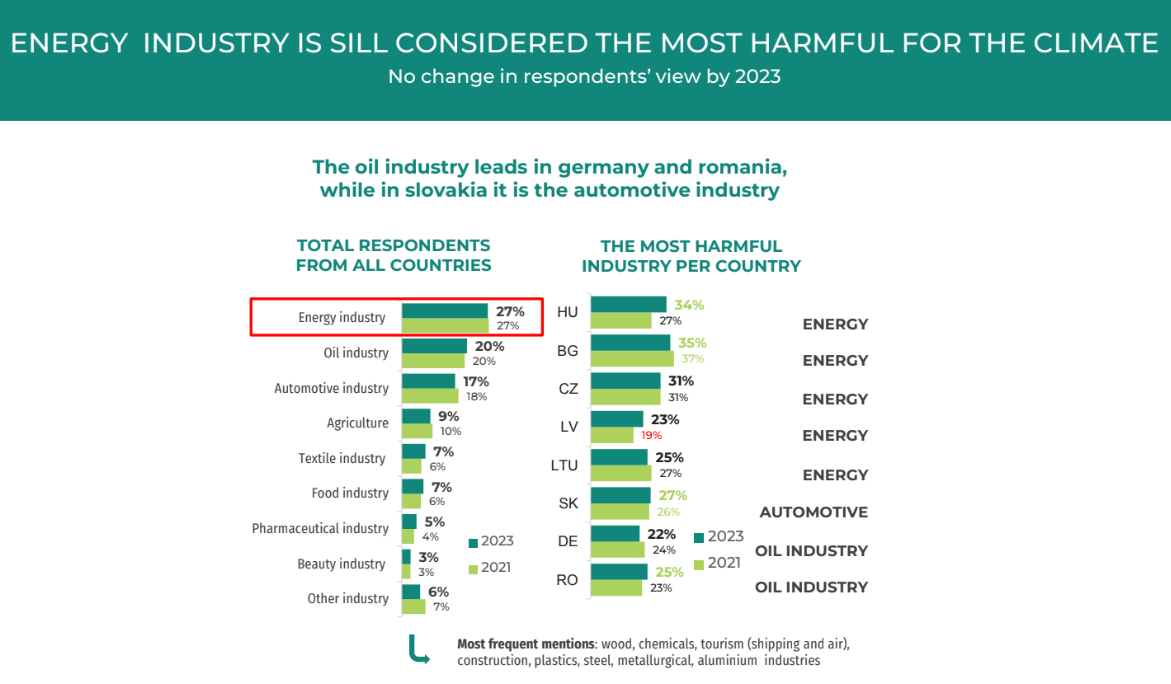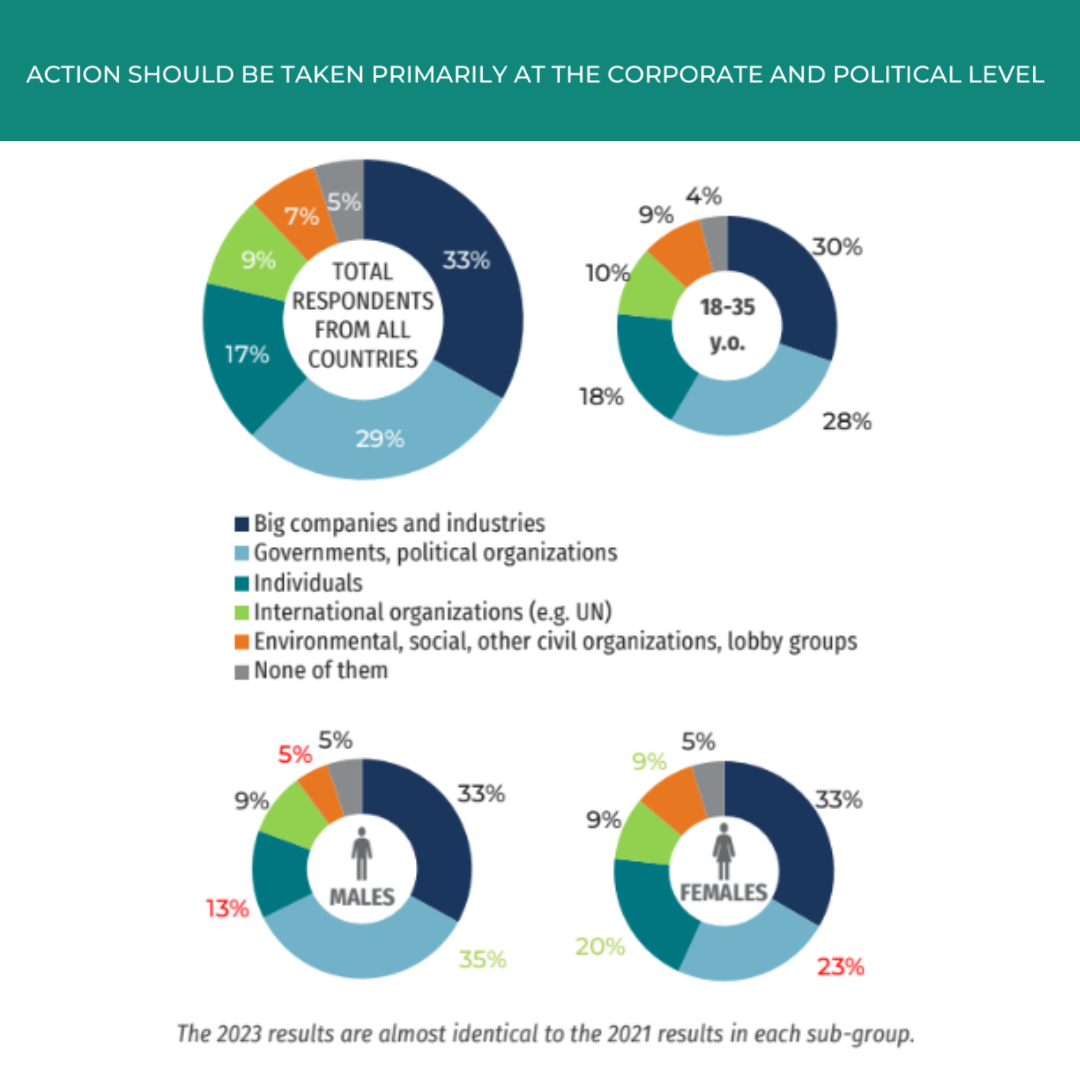The short answer is: humans. But the question we asked: who's really responsible for climate change? Climate change threatens to transform the world as we know it. According to the Harvard Political Review at the current rate of global greenhouse gas emissions, climate change could displace two billion people due to rising ocean levels, cost the U.S. economy billions of dollars, and cause upwards of 250,000 additional deaths per year before 2100.
There is a strong scientific consensus that the Earth is warming and that this warming is mainly caused by human activities. This consensus is supported by various studies of scientists' opinions and by position statements of scientific organizations, many of which explicitly agree with the Intergovernmental Panel on Climate Change (IPCC) synthesis reports. But switching from plastic straw to reusable straw won't solve the problem, while only 100 investors and state-owned fossil fuel companies are responsible for around 70 percent of the world’s historical GHG (Greenhouse Gas) emissions.
We planned to conduct a second survey in 2023 with the cooperation of CEEWeb, our lead partner organization, focusing on how climate change impacts all life on Earth and how our choices affect the ecosystems in order to capitalize on the strong synergies in an emotional, life-centered communication campaign. The evaluation of the survey was compared with the results of the 2021 survey to see how the understanding of the public, and especially the young (18-35 years old) generation, has changed after about one and a half years. The aim of the ‘Game Over?’ project is to support the multi-dimensional and cross-country campaign of CEEWEb for Biodiversity with identifying the most appropriate messages and channels for communication actions.
Three quarters of respondents think that man made actions rather or greatly contribute to climate change, while almost half mentioned the responsibility of nature. 39% of respondents mentioned both options, meaning that they believe the two areas are equally responsible (vs. 37% in 2021). Women are more likely to associate the problem with man-made actions than men.
Man-made actions were mentioned the most in Hungary, while the responsibility of nature was emphasized the most in Romania, and Latvia. In Bulgaria, both sides have particularly high percentages. The smallest difference between the 2 sides is in Latvia, with only 4% difference between man-made and natural actions – due to a significant decrease in the proportion of people who mentioned man-made actions and a significant increase in the proportion of people who mentioned natural causes behind climate change.
Man-made actions are the main contributor to climate change: the energy industry is still considered the most harmful for the climate. The oil industry leads in Germany and Romania, while in Slovakia it is the automotive industry.

‘It could be slowed down by producing as little as possible, if there was no demand for new products.’ (HU, male, 37)
‘Production, all those operating factories that pump a lot of bad things into the environment, and damaging both trees and nature and the ozone layer, then acid rain forms. That is what factories do...’ (LT, female, 27)
‘The best scenario is that through technical progress everything is somehow regulated, be it famines, droughts or even cold, no matter in what form, that one simply controls nature through technology.’ (GER, male, 22)
Energy industry is still considered the most harmful for the climate
In almost all countries, the same sector is in first place in 2023 as in 2021. There is no change in this in respondents’ view by 2023. In almost all countries, the same sector is in first place in 2023 as in 2021.The only exception is Romania, where the energy sector was also the most responsible for climate change 2 years ago, but the 29% share of the energy sector has dropped significantly in 2023 (23%) . Instead, the share of the oil sector has increased.
The qualitative phase reinforced - just like in 2021 - that climate change is mainly attributed to man's inappropriate actions: industrial production, too much consumption, in general the exhaustion of resources in the pursuit of profit. In addition, the planet being overpopulated and the war in Ukraine were listed as factors contributing to the environmental crisis, and there were a few mentions of natural causes as well.
Action should be taken primarily at the corporate and political level-respondents agreed on that.

- Why does the younger generation in 2023 feel disappointed, skeptical and pessimistic about climate change?
- How do women and men feel about climate change? Are there any differences between the genders?
- What actions do I need to do against climate change? Is what I do important?
- How big is the problem?
- And how we can raise awareness and what is the role of the media?
Those are the questions we discuss further in our blog series.
If you want to know when the new blog article will be published, or get more news about the topic sign up to our newsletter here.
If you are interested in the whole survey, you can find it here.



